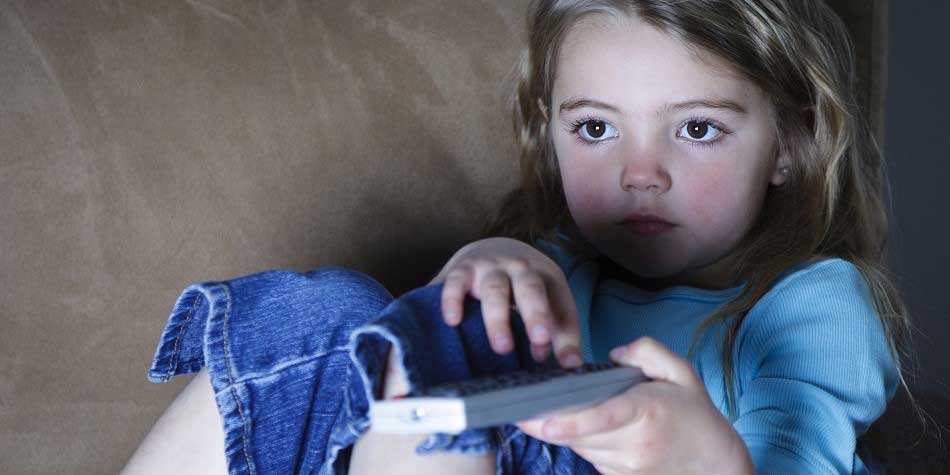
From classroom computers to bedroom televisions to the smartphones that seem stuck to their hands, screens have invaded every part of kids' lives. And excessive time spent staring can be bad for their development, no matter their age.
"Too much screen time can lead to more behavioral problems, attention problems, a sedentary lifestyle, weight gain and childhood obesity," says Elliot Freed, DO, a family medicine doctor from LewisGale Hospital Montgomery in Pembroke, Virginia. For older kids, untold hours spent glued to a display is connected to mental health issues, as well.
So, in a world where screens are inescapable--and, often, a necessary part of their day-to-day--how can parents and guardians find a happy medium? How can they balance the reasonable, potentially beneficial use of computers and televisions, like those in a school setting, with recreational use like social media and watching TV shows?
Here are some guidelines, plus tips on how to effectively manage your child's screen time use.
Screen Time For Younger Children
Experts believe screens don't have many benefits for babies and toddlers. For one thing, interaction with real-live people and things is crucial to the development of this age group--and excessive screen exposure may detract from that, and even cause delays as well as sleep interruptions. What's more, babies simply don't understand what's happening onscreen.
According to the American Academy of Pediatrics (AAP), children under 18 months should not be exposed to any screen media [https://www.sharecare.com/health/toddlers-development/article/toddlers-tech-too-young], save video chatting, where they can interact with family members. Between 18 and 24 months, the littlest kids can be slowly introduced to "high-quality" shows as long as a parent or guardian is around to guide them through.
Once your child hits preschool--between the ages of 2 and 5--the AAP advises allowing no more than one hour of media per day. Since what they see matters, these should also consist of high-quality programs--think _Sesame Street_ or _Ask the S__torybots_. Co-viewing with your child is one way to ensure this and to help them understand exactly what's happening onscreen.
Educational apps and games are often introduced at this age, as well. Since their efficacy is still being studied, parents should monitor their children's usage.
Screen Time for Older Children
As kids get older, screen use becomes more complicated; many need to use computers for school, and the introduction of smartphones opens upa whole world of screen-based interaction.
Perhaps because of this, the AAP does not set a specific time limit to how much children ages 6 and above should interact with media. However, they _do_ say that parents should place limits to ensure kids are not choosing media over their health. Kids should be sleeping well and getting enough physical activity. Too much screen time can lead to deficiencies in those areas.
For example, there's plenty of research to suggest that sitting in front of a screen too long can increase a child's risk of obesity. The risk is even higher if children have TV screens in their own bedroom. More physical activity and a healthy diet are tied to fewer health complications down the line.
Too much screen use may contribute to mental health issues, as well. A July 2015 study published in _Cyberpsychology, Behavior and Social Networking _showed that children who used devices to check social media for longer than two hours a day had increased psychological problems and increased levels of suicidal thoughts.
How to Manage Your Child's Screen Time
The best solution to these problems? "Everything in moderation," says Freed. Parents have the ability and responsibility to influence how and when their children interact with media. Here are some tips for managing your child's screen use:
Create Media-Free Zones: Face-to-face interactions with other family members and friends are essential for your child's development. So, talk to your family and designate times and areas of your house that will remain media-free. Keep the dinner table, the study area and bedrooms screen-free. You can either verbally agree on these designated hours and places or they can be written down in what the AAP calls a "family media plan." Sites like HealthyChildren.org help you create these documents and specify restricted and unrestricted media use within your home.
Limit Tech Use Before Bed: Freed believes using a phone before bed can stimulate children and cause insomnia or a worsened quality of sleep in general. He suggests avoiding screen time 30 to 60 minutes prior to bedtime.
Limit Extra Screen Time: Screens have become an integral part of classrooms, as many teachers encourage students to take notes on computers, and oftentimes programs or books are only available online. If your high schooler is already spending two to three hours on a screen for class or to complete their homework, you may want to cut down any additional screen time. "Limit extra screen time for the older children who might, out of necessity, have to have increased screen time," says Freed.
Monitor Media Use: What your child watches matters, especially when they're younger. Co-viewing media with them can help, since you can explain what they see. Common Sense Media is an excellent resource for parents looking for high-quality programming or reviews of the shows your kids are already watching.
Talk About Touchy Subjects: Whatever your kids' ages, as a parent, you can make sure they're using media safely, and not engaging in online bullying or sexually explicit behavior. Discuss the dangers online harassment can pose to your child and to other people.
Finally, as an adult, it's up to you to model good tech behavior. In addition to monitoring how your child interacts with media, limiting your own screen time--and using media wisely--may be the most effective things you can do.
$webqFacilityNumber
Need a Physician?